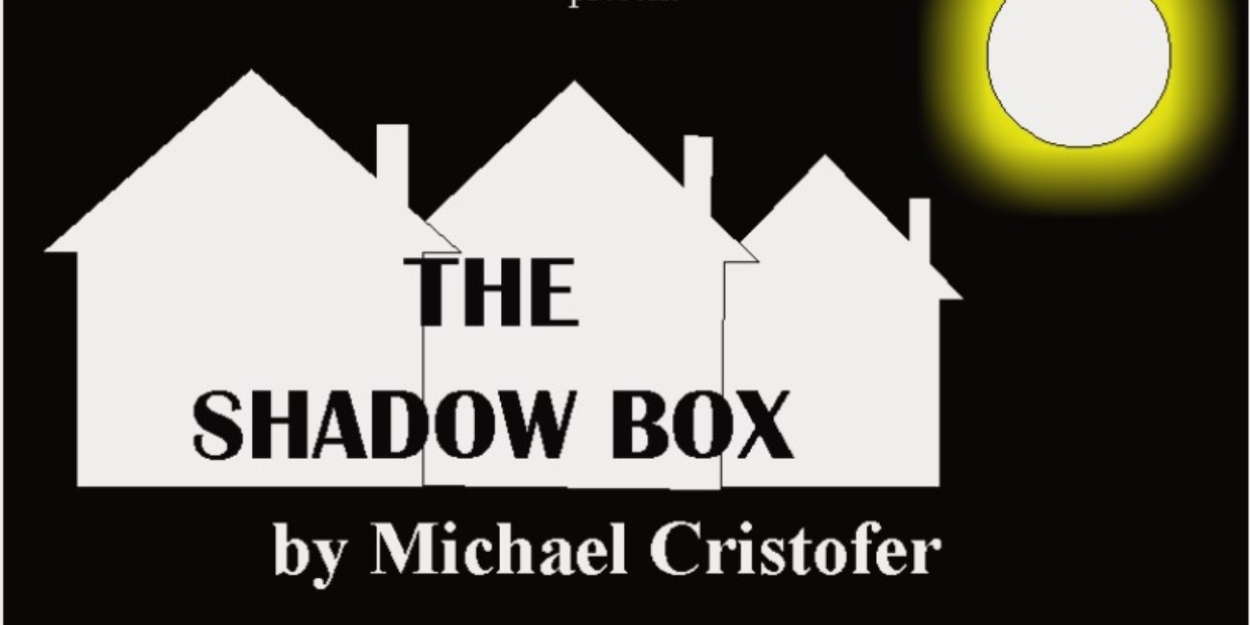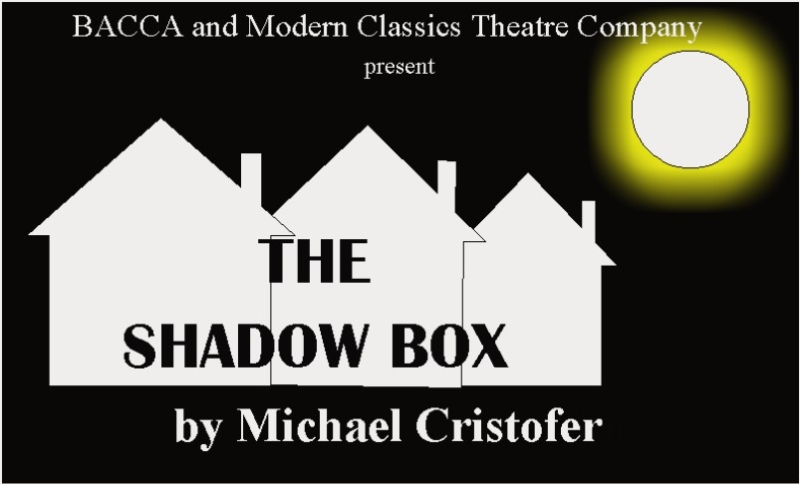Review: Modern Classics Theatre Company's production of THE SHADOW BOX at BACCA Arts Center
The production runs from November 11 through 20th


With his 1977 Pulitzer Prize Winning play, The Shadow Box, Michael Cristofer creates his own display case, a shadow box if you will, showcasing life's unfortunate one sure thing, death. In the play's program, a quote is provided from renowned psychiatrist Elisabeth Kubler-Ross. She stated, "There are five different stages that a person will go through when he faces the fact of his own death: denial, anger, bargaining, depression, and acceptance. These stages will last for different periods of time; they will replace each other, or exist at times side by side...But the one thing that usually persists through all these signs is hope." Cristofer allows the audience to see these varying stages of grief through his characters. The play takes place at three hospice cottages where we see how death affects three terminally ill patients and their loved ones. Shadow boxes are usually created to display memories and keepsakes. Cristofer uses the cottages metaphorically to showcase the grieving process.
In cottage one, working class man Joe (acceptance) is reunited with his wife Maggie (denial/bargaining) and teenage son Steve. In cottage two, writer Brian (depression/acceptance) and his lover Mark (anger) are visited by Brian's free spirit, ex-wife Beverly (acceptance). Cottage three houses senile Felicity (denial) who is cared for by her daughter Agnes (denial/anger/depression), who has become very inhibited due to her difficult relationship with her mother and the constant favoritism displayed towards her younger sister Clare. Will these families be able to come together and make progress toward accepting their fate?
The entire acting ensemble is strong. The ill-fated characters are played brilliantly by Carl Tese (Joe), Tom Ciorciari (Brian) and Rosemary Flanagan (Felicity). Each one gives a bravura performance here and commands the stage. Joe's son Steve is played by Carl Tese's real life son Luke; I'm sure this added a whole other dimension to each of their performances. As Beverly, Jill Linden is quite impressive. The character of Beverly is a human jigsaw puzzle. Linden wonderfully weaves an in-depth performance that allows you to see this character crumble into pieces, then pull herself back together. Candace Wilkerson (Agnes), Michelle L. Nielsen (Maggie), Alex Rich (Mark), and Eileen Dershowitz (Interviewer) also give excellent performances.
Modern Classics Theatre Company puts on a wonderful, intimate production. Imagine having the opportunity of seeing a great, under-performed classic play performed in your living room. Michael McAuliffe directs a fine production. Dan Kani created a simple set that allows the audience to see the interior of the "cookie cutter" cottages; there's a porch, a living room and kitchen. The backdrop is all black, evoking the anger and depression within each cottage's walls. Julie Larson and Caroline McCurdy's excellent lighting amplifies each scene by calling your attention to focus on specific characters in their own living quarters. While each scene plays out, the other characters remain on stage acting subtlety. This was an amazing technique McAuliffe incorporated as it promoted how each of these stories are connected. Each character is currently feeling the same emotions within their own lives. The lighting and staging also promotes the universal themes of the acceptance of loss and importance of honesty. McAuliffe exhibited multiple strokes of genius with this production. One stroke of genius was to have the Interviewer sit amongst the audience. The three terminally ill patients are observed and studied by an anonymous interviewer, who also serves as a counselor to the patients and their families (and enacts the role of "Big Brother"). By having the interviewer seated in the audience, McAuliffe makes the audience feel like they are part of the production. You feel you are observing these families through a two-way mirror like the Interviewer; maybe, we are a part of the research team.
At the end of Act I, Joe and Maggie's son Sean sits on the porch and is supposed to play "Goodnight Irene", while the rest of the cast has an interjecting, disjointed dialogue about suffering. "Goodnight Irene" has been scrapped from this production and in its place is "Time in a Bottle" by Jim Croce, a brilliant choice. "Time in a Bottle", a song about mortality, is one of the most haunting songs ever written. Jim Croce wrote this song immediately after discovering that his wife was pregnant. Croce was so excited and elated that he was going to be a father, but all of sudden was overcome with great fear as he knew their time together would be limited. Eerily, this notion did become true because Croce's life was unfortunately cut short due to a plane crash. It was genius using this song in the production as it magnifies the play's theme of accepting one's mortality. In addition, we find out during Act I, Joe and Maggie's son Steve is not aware that his father is dying; Maggie hasn't had the heart to tell him, especially since she is also in denial about her husband's fate. By having Steve play this song, it hints that Steve is 100% aware of what is going on with his father; parents need to stop underestimating the intelligence of children. I'm not sure if McAuliffe chose to incorporate this song, or if it was an impromptu performance by Luke Tese; either way, it was a stroke of genius to incorporate it.
The Shadow Box opened at the BACCA Arts Center in Lindenhurst, NY on November 11, 2022. It will play three more performances this weekend: November 18-20. You can purchase tickets for the production here: https://modernclassicsli.booktix.com/cart.php?action=show_pers&show_id=32&show_sec=e7e4e34e91dc9cae
Be sure to bring some tissues and take the time to see this production. Remember the words of Jim Croce "There never seems to be enough time to do the things you want to do once you find them."
Reader Reviews

Videos

